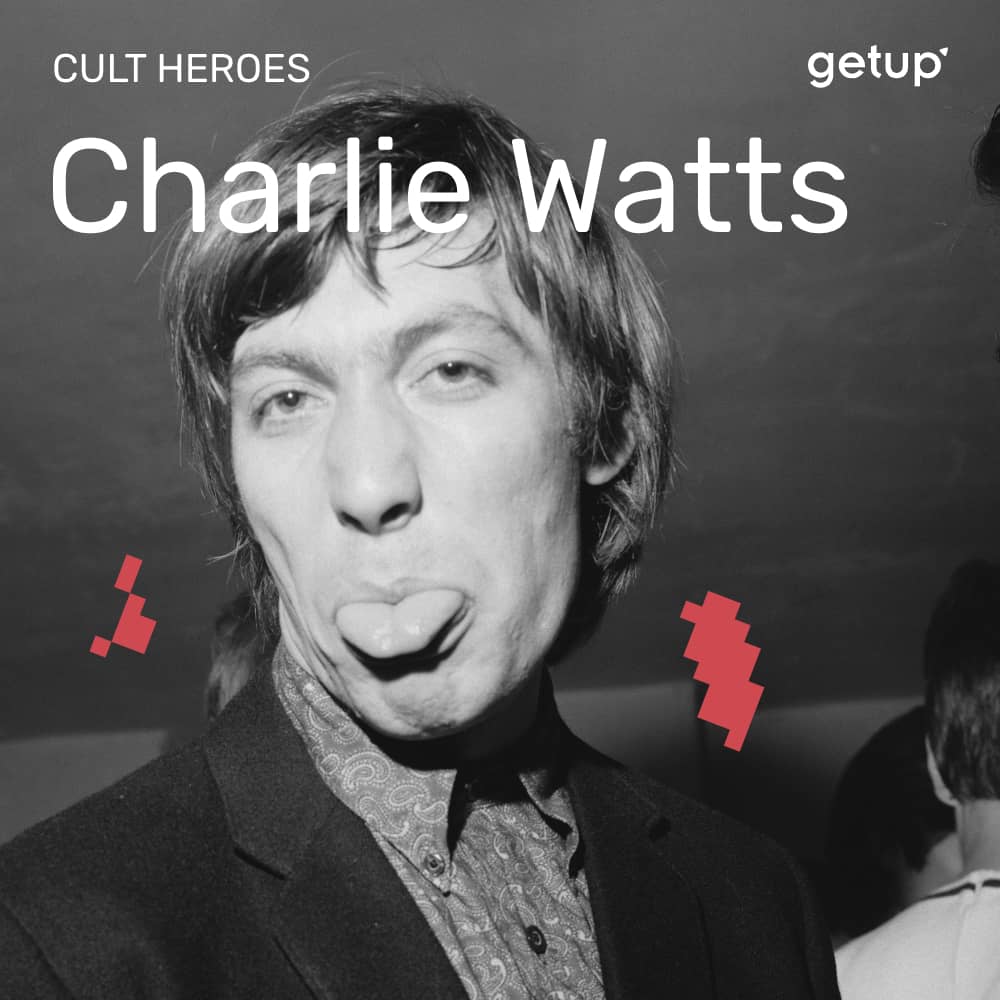What would “Paint It Black” be without its tom-toms? Where would be the drama of “Midnight Rambler” without its change of meter? Aren’t “Get Off My Cloud” and “My Obsession” all about the drum riffs? Doesn’t the groove of “Hot Stuff” come from the impeccable timing of the snare drum? Yet while we all wax lyrical about Jagger’s taste and bang on about Richards’ rehab sessions, our loquacity fades when it comes to talking about Charlie Watts’ role in the myth of the Stones. Behind his straightforward and no-frills playing lies someone rather mysterious.
Endowed with an almost monastic humility – something of an anomaly in the rock world – the musician’s discreet elegance borders on camouflage. He preferred the calm of his hotel room to draw or read Agatha Christie, rather than the well-known antics of his peers. Was he even a Rolling Stone? ‘I don’t know what the Rolling Stones are. They’re my friends,’ he once commented. But he wasn’t hiding. As Keith Richards said in 1981, there was nothing secretive about him. ‘There’s nothing fake about him, especially not his modesty. It’s totally genuine. He can’t understand what people find in his drumming.’
Watts was self-taught, a great jazz fan, and always very self-deprecating, especially when he was spoken about alongside masters such as Max Roach, Chico Hamilton, Tony Williams, and Buddy Rich. His place as a drummer was very clear to him: ‘The audience doesn’t really want to hear me play “Honky Tonk Woman”. They want to hear the song, mostly, with me performing it, because the song is more important than me.’ To listen to him you’d think he was merely following instructions, even going so far as to say that Jagger’s mixing enhanced his playing. Self-effacing once again.
Wouldn’t the fact of sticking to what a song requires, and fading into the background in order to better serve the sound, make him all the more essential? Bassist Bill Wyman offered a valuable clue: ‘Our band doesn’t follow the drummer; our drummer follows the rhythm guitarist, who’s Keith Richards.’ This is obvious from the devastating riff on “Can’t You Hear Me Knockin’”. But Charlie Watts didn’t just stick to the feel Richards created – he magnified the feeling of Jagger’s singing (“She Smiled Sweetly”, “Monkey Man”) and Mick Taylor’s solos (“Time Waits For No One”). When circumstances demanded, he could smash those cymbals (“Citadel”), and even anticipated punk, knowing as we do now that he wasn’t playing electric drums in order to cover the hysterical screams at their first concerts (“I’m Moving On”).
He therefore did what the situation required of him without ever losing that sobriety which paradoxically made him anonymous (‘Anyone can play like me, and that’s what I like, in a way’). In this he embodied something of the evanescent wisdom of ‘becoming-imperceptible’ advocated by Gilles Deleuze: ‘It requires a great deal of asceticism, sobriety, and creative turning inwards: an English elegance, an English fiber, blending in with the walls, eliminating that which is over-seen and over-sensed.’ Now that he’s gone, it’s up to us to sit up and listen to him, giving him all the attention he deserves!




.jpg)
.jpg)
.jpg)